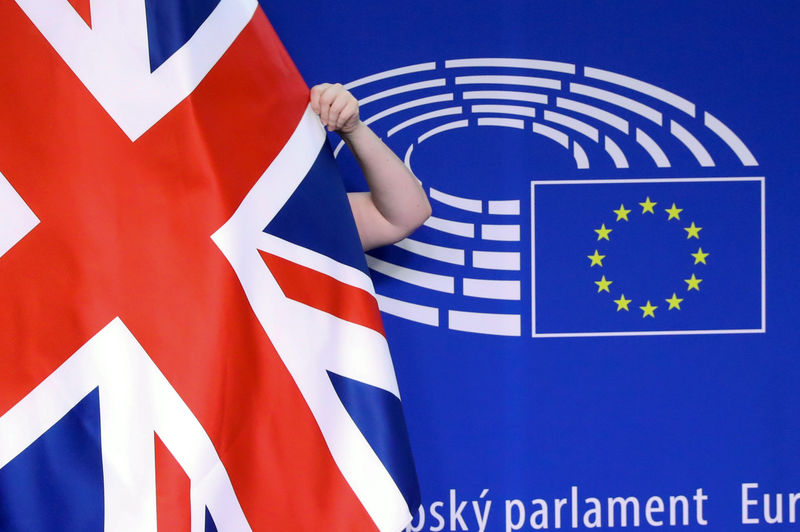By Geoffrey Smith
Investing.com -- A Hard Brexit is coming, and neither stocks nor even the pound seems to care.
According to a report in the Financial Times on Monday, the U.K. government is drafting new legislation that would essentially rip up the EU Withdrawal Agreement governing the current transition period, putting the U.K. back on course for a hard border between the British province of Northern Ireland and the Republic of Ireland to the south. Prime Minister Boris Johnson is also telling local media that a trade deal to govern relations between the U.K. and EU effectively has to be done by October 15, accelerating a deadline that is currently set for the end of the year.
As a result, the pound has weakened against the euro, but not by much. It was down 0.6% at 1.1138. However, U.K. government bonds were higher, pushing yields down by one or two basis points along the curve, while the stock market could simply not have cared less: the FTSE 100 rose by 1.5% and the more domestically-focused FTSE 250 midcap index - which has traditionally been a better proxy for Brexit risk than the multinational-dominated FTSE 100 - rose 1.4%.
Evidently, the markets have tired of a narrative which has for four years promised an economic disaster and hardship that have stubbornly failed to arrive.
While it's true that the British economy has given up most of its relative outperformance of the euro zone in the first half of the last decade, such nuances have been lost in the all-engulfing and much more real economic disaster that has followed the Covid-19 lockdowns. U.K. stocks have underperformed the rest of Europe this year: both the main FTSE boards are down by over 20% compared to 12% for the Stoxx 600, but that is largely explained by the country's poor handling of the coronavirus, and by the fact that its services-heavy economy was more vulnerable to the disruption of lockdowns (conspicuously, the only major index to underperform the U.K. this year is Spain's IBEX 35, which suffers from the same problems).
So why should the markets care any more about Brexit?
The obvious answer is because its ability to cause real, additional economic disruption both to the U.K. and European economy haven't gone away. The U.K. has not found a way to track customs shipments that would remove the need for border checks, nor will the infrastructure that will be needed for such checks be ready by January, when the Withdrawal Agreement expires.
Secondly, the scare scenarios implied in the gestures and negotiating tactics currently being used by both sides carry the risk of crystallizing if either side negotiates itself into a corner. The U.K. is betting on the EU's inability to take hard decisions with immediate and negative consequences, gambling that the Covid-19 recession will make countries like France and Germany even more reluctant to sacrifice a dominant position in the U.K. market on the altar of single market purism. The problem with that logic is that, apart from some contingency planning by central banks and regulators to avoid finance streams being disrupted, there is still no evidence to support it, even after four years.
Today's FT story makes for a good headline, but is not really any departure from the logic that Boris Johnson has advanced consistently for four years.Such haggling isn't pretty when viewed up close, and the new legislation certainly exposes the U.K. to accusations of bad faith from Brussels. But it is not enough to shake the prevailing belief that some kind of messy compromise will be avoided at the last minute. After all, that's how Europe has always worked. Sterling and U.K. stocks are already heavily discounted for Brexit risks. The real risk, from the market point of view, is being wrong-footed when - rather than if - that last-minute compromise comes.
